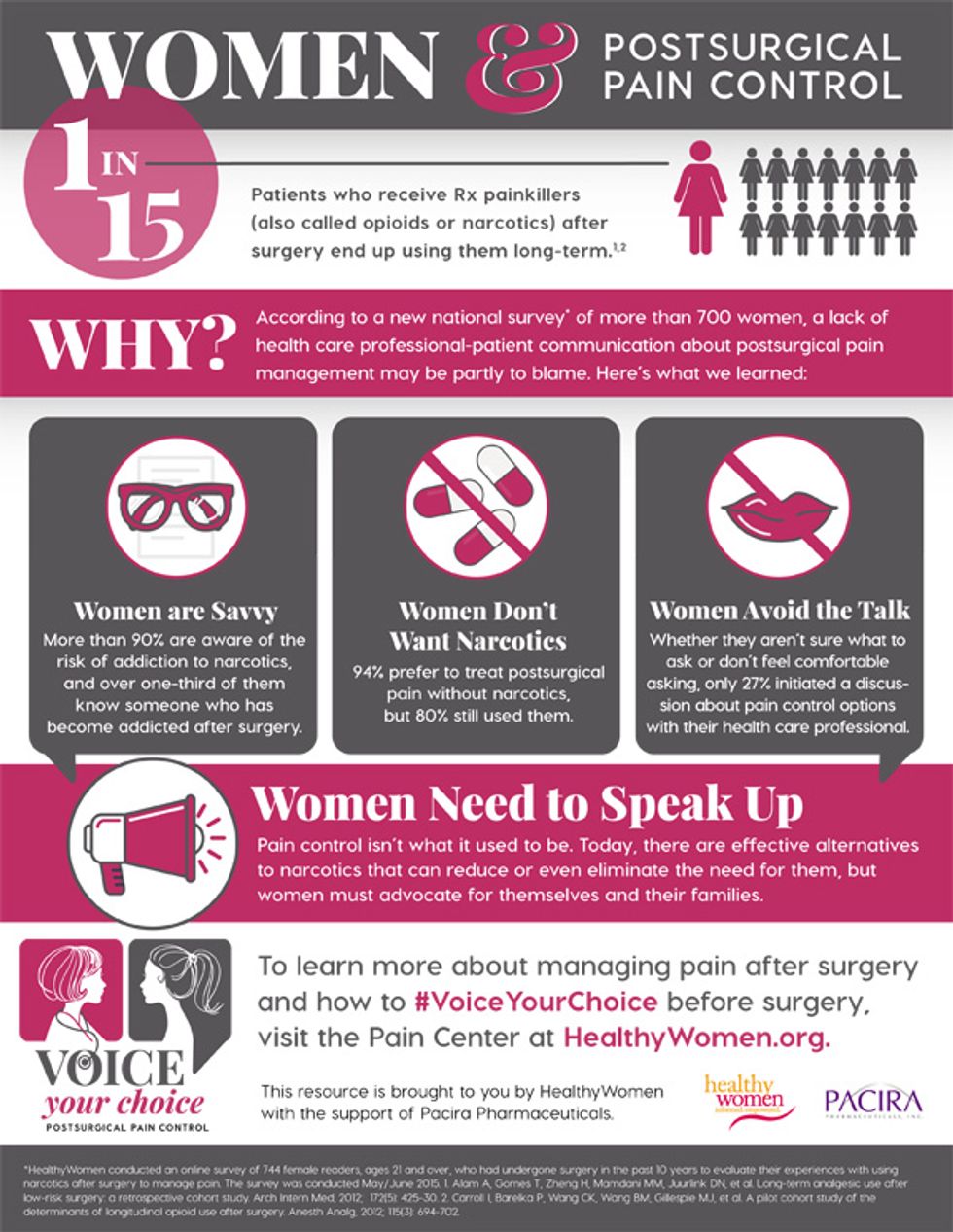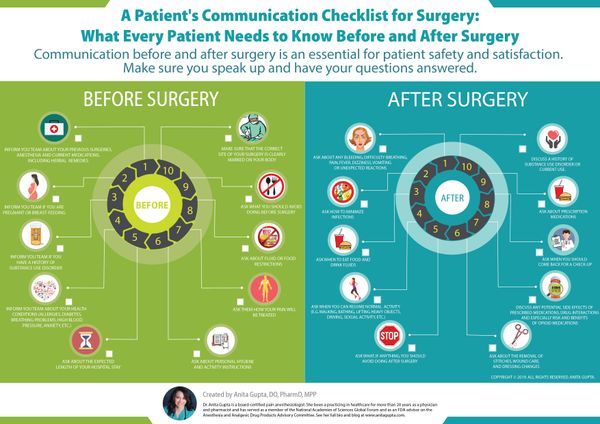The weeks before surgery require preparation. Who will be driving you? Is everything tied up at work? Will someone be able to help with the kids? Often times, one very important thing is overlooked: Pain management.
According to a recent HealthyWomen survey, 99 percent of women want a choice in how their pain is managed after surgery, with 94 percent of women saying if they could effectively manage their pain without narcotics —also known as opioids and prescription painkillers—they would. And yet, 80 percent of the women surveyed still used narcotics to manage postsurgical pain.
"Narcotics have long been the cornerstone of postsurgical pain control because they work well for severe pain," explains Dr. Kristi Funk, a breast cancer surgeon. "However, the pain relief often comes with a host of unwanted side effects and the potential for long-term use, or in the most severe cases: misuse, abuse, or overdose."
Most women, 76 percent, are aware there are options other than narcotics to manage postsurgical pain, but it seems they aren't exploring them during their pre-op discussions. Today, there are several alternatives to effectively treat pain after surgery that can help reduce or even eliminate the need for narcotics after surgery. Health care professionals and hospitals are using what is called a "multimodal" approach, which means a combination of medications are used before, during and after the procedure to block the pain in different areas without a heavy reliance on narcotic medications.
"A typical multimodal program may include short- and long-lasting local anesthetics (numbing medications that can be injected directly into the surgical site during the procedure) and anti-inflammatories such as ibuprofen, acetaminophen and aspirin," Dr. Funk explains. "We need more education about these options, and that's why the Voice Your Choice campaign is so important."
Now, doctors and patients have a lot to discuss regarding pain control after surgery.
"Ultimately, pain management is a partnership between the surgeon and the patient; the more information we have, the better we can take care of you," Dr. Funk says.
For the 94 percent of surveyed women who would like to have a choice in how they effectively manage their pain after surgery, here are some resources to help guide you through the process.
9 Questions to Ask About Postsurgical Pain Management
Know Your Options for Managing Pain after Surgery
This is for general information only and does not constitute specific medical advice. If you have postsurgical pain, you should consult with your health care provider.
This resource was created with the support of Pacira Pharmaceuticals.
- Designing Less Addictive Opioids, Through Chemistry ›
- There Are Alternatives to Opioids for Pain After Surgery ›
- Why You Need to Advocate for Yourself and Create a Pain Management Treatment Plan Before Surgery ›
- Fast Facts: Alternatives to Opioids for Pain Management After Common Surgeries for Women - HealthyWomen ›
- Using Opioids to Manage My Cancer Pain - HealthyWomen ›
- Opoioids Alternative for Postsurgical Pain - HealthyWomen ›
- Breast Surgery and Opioids: What You Need to Know - HealthyWomen ›








